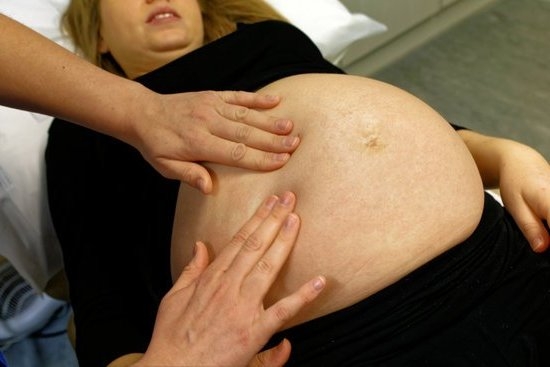Brownish Discharge In Late Pregnancy
During the final weeks of pregnancy, it’s common to experience a variety of changes in your body, including a discharge that may be brownish. This discharge is usually caused by the hormonal changes that occur as the baby approaches delivery. Although it’s not always cause for concern, it’s important to consult with your healthcare provider if you have any questions or concerns.
The discharge is often a sign that the body is getting ready for labor, and in most cases, there’s nothing to worry about. However, in some cases, brown discharge can be a sign of a problem, such as placental abruption, which is a serious condition in which the placenta separates from the uterus. If you experience any sudden pain, contractions, or bleeding, contact your healthcare provider immediately.
If you’re not experiencing any problems, there’s usually no need for concern. However, it’s a good idea to keep an eye on the discharge and to report any changes to your healthcare provider. If the discharge becomes heavier or changes color, it may be a sign of a problem and you should seek medical attention.
Discharge And Pregnancy Symptoms
Many women experience discharge and pregnancy symptoms during their pregnancies. While these symptoms may be bothersome, they are usually not indicative of any serious problems. discharge is a common symptom of early pregnancy, and is caused by the increased production of estrogen and other hormones. This discharge is typically thin and white, and may be accompanied by a mild odor. Pregnancy symptoms such as discharge and nausea are thought to be caused by the increased levels of progesterone in the body. Progesterone is a hormone that is responsible for maintaining the pregnancy, and is also responsible for many of the early pregnancy symptoms.
Normal Discharge During Pregnancy
A pregnant woman’s body goes through many changes and one of them is an increase in vaginal discharge. This discharge is usually normal and is called leukorrhea. Leukorrhea is a thin, white, and mild-smelling discharge that is caused by the increase in estrogen levels.
The amount of discharge increases during the second and third trimesters. It may also increase during sexual arousal, exercise, and after urination. Leukorrhea is normal and should not be cause for alarm. However, if the discharge is accompanied by itching, burning, or a bad odor, then it may be a sign of an infection and you should see your doctor.
There are some things that you can do to help reduce the amount of discharge:
-Wipe from front to back after using the bathroom
-Avoid using scented products down there
-Wear cotton underwear and loose-fitting clothes
-Drink plenty of fluids
-Avoid hot baths and showers
Crusty Nipple Discharge Pregnancy
is a time of great change for a woman’s body – hormones are raging, and many new and unfamiliar symptoms can crop up. One such symptom is crusty nipple discharge, which is most often caused by a change in the balance of hormones during pregnancy. This discharge is usually thick, white, and cheese-like, and it can be quite uncomfortable.
There are a few things you can do to help ease the discomfort of crusty nipple discharge:
-Try wearing a bra that is less restrictive, and make sure the bra is clean and free of any irritants.
-Avoid wearing tight clothing around the breasts.
-If the discharge is itchy or sore, you can apply a cold compress to the area to help soothe it.
-If the discharge is persistent or bothersome, you may want to speak to your doctor about it. They may want to do some tests to determine the cause.
Most cases of crusty nipple discharge are nothing to worry about, but it’s always best to speak to your doctor if you have any concerns.
Causes Of Dark Brown Discharge During Pregnancy
The causes of dark brown discharge during pregnancy are many and varied. The most common cause is implantation bleeding, which is when the fertilized egg attaches to the uterine wall. This can cause light spotting or bleeding, which may be accompanied by a dark brown discharge. Other causes of dark brown discharge during pregnancy include:
– Miscarriage
– Ectopic pregnancy
– Infection
– Placental abruption
If you are experiencing any type of bleeding during pregnancy, it is important to consult with your doctor. Bleeding can be a sign of a problem, and it is best to get it checked out.

Welcome to my fertility blog. This is a space where I will be sharing my experiences as I navigate through the world of fertility treatments, as well as provide information and resources about fertility and pregnancy.





